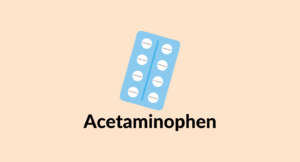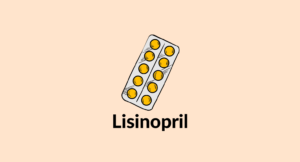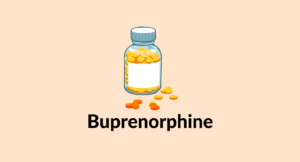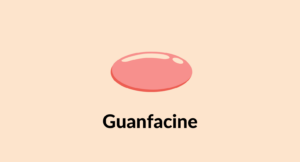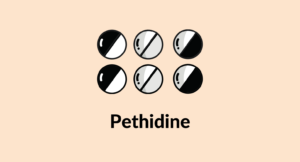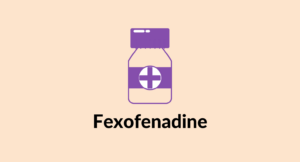
Does CBD Interact With Metformin?
Information on risks & possible interactions between CBD & metformin.
Metformin is an anti-diabetic drug. It is the most common medication used in lowering blood sugar levels in type II diabetes and polycystic ovarian disease.
Unfortunately, metformin also comes with a host of negative side effects. Many people wonder whether or not CBD is a viable alternative to this common prescription medication or if they are safe to use together.
We’ll explore the potential interactions to watch out for between CBD (and other cannabinoids) and metformin.

Does CBD Interact With Metformin?
Yes, CBD and metformin, when taken together, may cause a dramatic drop in blood sugar levels — leading to side effects like dizziness, fainting, and injury.
It’s best to take CBD and metformin about 2 hours apart to avoid these potential side effects.
CBD can interact with metformin in two ways:
1. Increased Effect (Agonistic Interaction)
CBD may have an agonistic reaction when used with metformin. Both medications act on the blood sugar in the body. Both metformin and CBD can cause a decrease in the blood glucose level, though the mechanisms by which they do this are very different from one another.
Metformin makes the cells more responsive to insulin and increases lipid metabolism. CBD works on the endocannabinoid system (ECS) of the body and may be responsible for the increased insulin amount in the body. These interactions between the two can help lower blood sugar in diabetic patients. However, it largely depends on the physiology of the individual’s body as it may lead to a rapid drop in blood sugar in some patients, causing dizziness, fainting, etc.
2. Slowed Elimination (Metabolic Inhibition)
The second interaction that these two medications can have is the metabolic one. Both of them can compete for the same liver enzymes, mainly CYP3A4. It may cause a rise in the concentrations of both drugs for a longer duration and take a longer time for the removal from the body. This interaction could lead to several side effects.
There have been no reported incidents of the side effects of using these two drugs together to date. There is no available research to determine how these two drugs interact with one another and the complications they may have. Thus, the risk of interaction is less, but not completely nonexistent.
Other Names For Metformin
Metformin is sold under many different names. All share the same risk and potential interactions.
Other names for metformin include:
- Kazano
- Invokamet
- Xigduo XR
- Synjardy
- Glucovance
- Jentadueto
- Actoplus
- PrandiMet
- Avandamet
- Kombiglyze XR
- Janumet
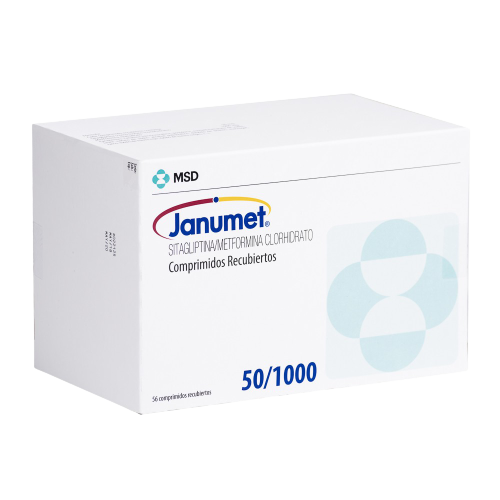
Is It Safe to Take CBD & Metformin Together?
It is possible to take both CBD and metformin as they have a very mild chance of interaction. But it is always best to take caution, as both drugs have their side effects and may cause the blood sugar to lower more than needed if used together. Talk to your doctor first and get their expert opinion. Never take these two medications by yourself without any medical supervision.
If you decide to take both drugs, it is possible to reduce the side effects by taking only small doses of both drugs at first. The dosage of both drugs depends on your body’s condition and needs. Avoid taking them together and try spacing between the doses of the two drugs.
Depending on your body’s response to these two medications, the dosage of CBD and metformin can be decreased or increased. If you feel any abnormal side effects at all, contact your doctor immediately.
Is CBD a Viable Alternative to Metformin?
CBD does not contain any psychoactive elements and has many benefits. It works by acting on the endocannabinoid system of the body by working on its receptors. This ability may play a vital role in energy regulation by affecting the cells’ response to insulin. Hence, CBD may help the cells to respond better to insulin and decrease the level of lipid in the body.
CBD, combined with the cannabis compound tetrahydrocannabivarin (THCV), can increase insulin production and lower blood sugar in diabetic patients.
A study has shown that CBD can cause the ‘fat browning’ process, which can help in lipid metabolism and prevent obesity.
CBD also has anti-inflammatory and anti-oxidative properties and may help reduce inflammation in the pancreas and help to produce insulin.
Because of the many benefits of CBD, it may be possible for it to become an alternative for anti-diabetic treatment. However, adequate research and studies about it are still lacking. There is not much information about its positive and negative effects on diabetic patients, so CBD is not a perfect replacement for metformin.
If you decide to use CBD while using metformin, you must consult your healthcare professionals first and get yourself assessed. Use the medications as directed, at the right time, and do not take more than needed.
What is Metformin?
Metformin is a type of biguanide antihyperglycemic drug. It is used as a first-line treatment for type II diabetes and in treating polycystic ovarian disease.
It can control the level of blood sugar in the body by decreasing the glucose production in the liver, increasing the sensitivity of the cells to insulin, and increasing the GDF (growth differentiation factor 15), which reduces appetite and calorie intake.
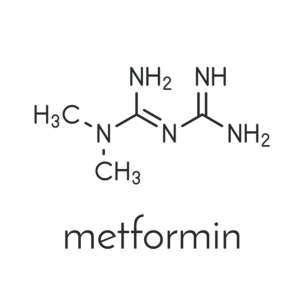
Metformin Specs:
| Drug Name | Metformin hydrochloride |
| Trade Name | Fortamet, Glucophage, Glucophage XR, Glumetza, Riomet, Kazano, Invokamet |
| Other Names | 1,1-Dimethylbiguanide hydrochloride |
| Classification | Biguanide antihyperglycemic |
| CYP Metabolism | Not metabolized gets excreted unchanged in the urine |
| Interaction With CBD | Agonistic, increased effect |
| Risk of Interaction | Mild |
What Does Metformin Do?
Metformin lowers the level of blood glucose in diabetic patients without causing hypoglycemia.
Diabetes is a chronic condition in which there will be a high level of sugar in the blood. Typically, when the body receives sugar from the diet, the pancreas releases the hormone insulin. Insulin controls blood sugar levels and enables the cells to absorb glucose to use as an energy source.
Several factors such as genetics, excess body fat, and others can cause the blood cells to become insensitive to insulin. It causes the cells to absorb less sugar, causing a high amount of it to flow in the blood circulation instead, making the insulin ineffective. This leads to an elevation in blood glucose, insulin resistance, and insulin deficiency as well. With time, it can cause many effects such as kidney damage, high blood pressure, etc.
Metformin decreases the liver’s ability to produce glucose (gluconeogenesis) and opposes the action of glucagon. It also activates the 5′-AMP-activated kinase (AMPK), which increases the uptake of glucose by the cells. It also decreases lipid synthesis and increases the oxidation of fatty acids. It also increases insulin sensitivity and increases peripheral glucose uptake and use.
Metformin is prescribed along with a suggestion of a proper diet and exercise program. The combination of these can normalize blood sugar and maintain weight.
Metformin shows to be effective in treating high blood sugar, restoring ovulation, and reducing weight in polycystic ovarian disease (PCOD). It is also undergoing studies for its potential anti-cancer abilities.
The liver does not metabolize metformin; instead, it’s excreted unchanged in the urine. But it does affect the workings of the liver enzyme called CYP3A4.
Metformin is not recommended for use in several conditions. This includes metformin hypersensitivity, congestive, cardiac failure, diabetic ketoacidosis with or without coma, severe renal disease, and abnormal creatinine clearance.
Side Effects of Metformin
- Abdominal distention
- Chest discomfort
- Chills
- Constipation
- Diarrhea
- Dizziness
- Dyspepsia
- Flatulence
- Gastrointestinal upset
- Heartburn
- Hypoglycemia
- Lactic acidosis
- Myalgia
- Nausea
- Vomiting
- Weakness
Types of Drug Interactions With CBD
CBD has shown to be safe and useful in the treatment of many conditions. But like most other drugs, CBD can interact with other medicines. Thus, any combination of drugs with CBD must be supervised. If you take any medications alongside CBD, always remain vigilant and look out for abnormal side effects.
There are three ways that CBD can interact with other drugs:
1. Agonistic Interaction
This happens when two medicines work on the same receptors on the body leading to increased effects.
Examples of medications that could cause agonistic interaction with CBD are:
- Antihypertensive medications— These include beta-blockers, calcium channel blockers, central agonists, diuretics, ACE inhibitors, alpha-blockers, and angiotensin II receptor blockers. CBD can react with these and cause a drop in blood pressure.
- Anti-diabetic medications —These include GLP-1 receptor agonists, meglitinides, SGLT-2 inhibitors, sulfonylureas, and insulin, alpha-glucosidase inhibitors, and DPP-4 inhibitors.
- Anti-anxiety medications —These include drugs like benzodiazepines and barbiturates. CBD could make their effects last longer.
2. Antagonistic Interactions
This is the opposite of the agonistic interaction. It happens when two drugs have effects opposite of each other. If taken together, one drug would cross out the effects of the other, causing a decreased efficacy of the second drug.
Drugs that have antagonistic interaction with CBD are:
- Immunosuppressants — These include azathioprine, mycophenolate cyclosporine, methotrexate, etc. CBD’s immune-stimulating properties may decrease the effects of these drugs.
- Stimulants — These include amphetamine and modafinil. CBD can cause their effects to lessen.
- Immunomodulators —These include antihistamines like carbinoxamine, desloratadine, levocetirizine. CBD could increase their sedative action.
- Asthma Medications — These include drugs like albuterol, fluticasone, montelukast, ipratropium bromide, and theophylline. CBD may counteract their abilities, especially theophyllines’.
3. Metabolic Inhibition
Some medications need similar enzymes to break down the drug molecules. It leads to both drugs competing against each other, causing their metabolism to slow down.
These include medications like:
- Blood thinners— CBD could cause an increase in the action of warfarin, enoxaparin, heparin, and others that could be very unsafe.
- NSAIDs— These include ibuprofen, naproxen, and high-dose aspirin. CBD could make them last longer in the body.
- Opiate analgesics— These include morphine, codeine, and hydrocodone. CBD could make them last longer in the bloodstream, causing complications.
- Antidepressants —CBD can make these drugs last longer in the body by slowing down their metabolism. Antidepressants include trazodone, mirtazapine, vortioxetine, vilazodone, and others.
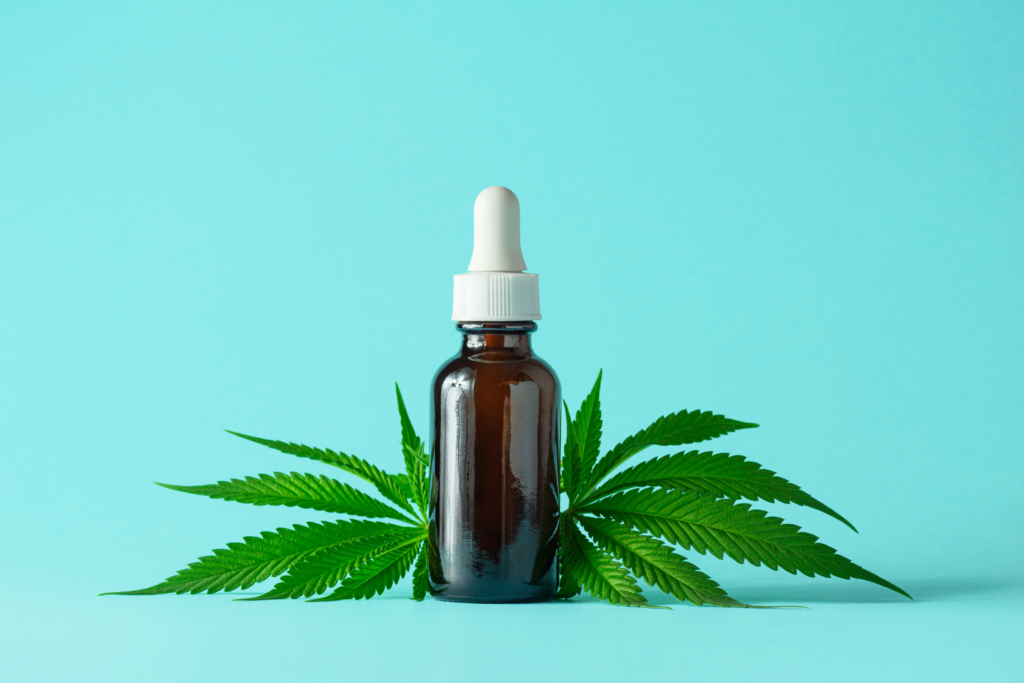
Key Takeaways: Is it Safe to Take Metformin With CBD?
CBD has the potential to become an alternative for the treatment of diabetes in the future.
CBD and metformin can have a mild interaction where both drugs last longer in the body and lower blood sugar levels below normal.
While they have very little chance of interaction, you must exercise caution on using both. Use them only under the guidance of a certified physician, and in case of any abnormal side effects, get medical attention immediately.
Sources
- Jadoon, K. A., Ratcliffe, S. H., Barrett, D. A., Thomas, E. L., Stott, C., Bell, J. D., … & Tan, G. D. (2016). Efficacy and safety of cannabidiol and tetrahydrocannabivarin on glycemic and lipid parameters in patients with type 2 diabetes: a randomized, double-blind, placebo-controlled, parallel-group pilot study. Diabetes Care, 39(10), 1777-1786.
- Parray, H. A., & Yun, J. W. (2016). Cannabidiol promotes browning in 3T3-L1 adipocytes. Molecular and cellular biochemistry, 416(1), 131-139.
- Li, K., Feng, J. Y., Li, Y. Y., Yuece, B., Lin, X. H., Yu, L. Y., … & Storr, M. (2013). Anti-inflammatory role of cannabidiol and O-1602 in cerulein-induced acute pancreatitis in mice. Pancreas, 42(1), 123-129.
Signup to our newsletter
Be the first to know about our newest arrivals and special offers!
